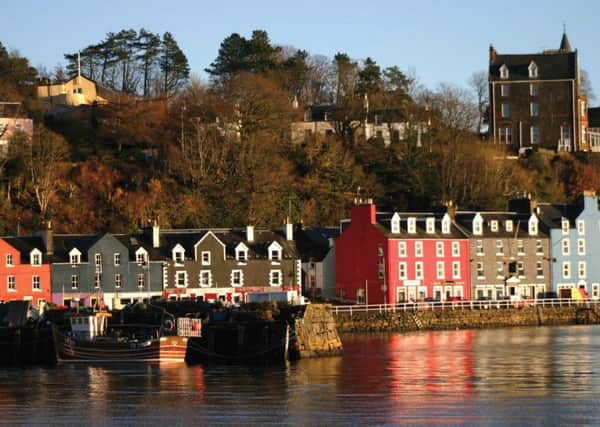Colin MacIntyre: The headless horseman of Mull helped make me who I am


I find I often appreciate the landscape in which I grew up even more when I’m away from it. The Isle of Mull – the voices of the people, the glassy-blue of the Atlantic and the mystery of the glens – seems to travel with me.
Currently I live in London and I am constantly surprised that the Thames is not the sea; that the voice over the speaker on the Tube is a driver from London Transport, and not the familiar tones of the CalMac ferry announcer; that the Piccadilly line stops are interspersed with warnings to ‘Mind the gap’ and not the availability of trinkets in the ferry shop. And all this then replayed in Gaelic. That’s what I hear.
Advertisement
Hide AdI increasingly appreciate how my storytelling in both book and song (I record and perform under the moniker Mull Historical Society) owes much to where I come from and the people I grew up around. The land, the sea stay the same. So it must be the people who define a place, especially an island, where everything floats and you are more bound.
I have recently published my ‘Hometown Tales’, a memoir about growing up on Mull, and it has left me with a greater understanding of this attachment to where I belong and how it has influenced my work. On Mull, my two grandfathers inspired me. One for his words. The other for his lack of them. One was the island’s poet-come-Clydesdale Bank manager, the other its plumber. One was keeping the island afloat, the other stopping it from sinking.
The poet-bank manager, Angus Macintyre, was the island’s very own ‘Bard of Mull’. He wrote about the curlew’s call, the brander pass and the days that passed too soon. He retired in the 1970s but still the locals believe if it had been “Angus’s bank” in Tobermory, then the recession wouldn’t have hit Mull. I need to keep them alive, and the other characters I grew up around. Although some, like old Dykes, who wore his skipper’s hat even on the Mishnish’s bar stools, were not so encouraging. He once coaxed me across Tobermory Main Street, where my friends and I were rehearsing our teenage band, ‘The Love Sick Zombies’, to utter the only three words he ever spoke to me: “What a racket.” But even that was material. Something I could use. I had rich pickings on my island.
For an islander, arriving in the city can be a fertile creative environment too. The mass populace, public transport, the sheer amount of culture, sent this islander’s head in a spin. For many years I tried to get my music going in Glasgow, but it was only when I took the advice of my late father – Kenny Macintyre, the former BBC Scotland political and industrial correspondent – to embrace where I came from, that things started to happen.